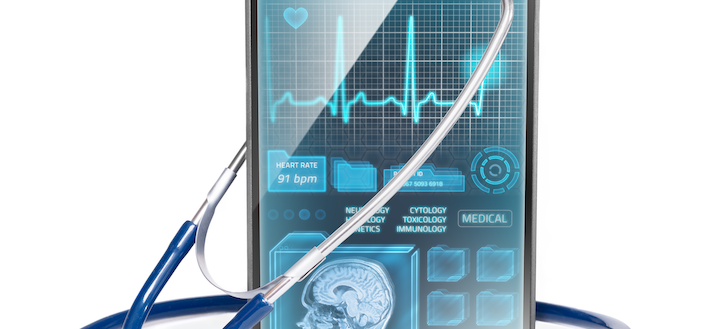Boston Scientific Launches Connected Patient Challenge, a Search for Digital Tools to Better Manage Chronic Conditions
The challenge aims to foster a conversation about chronic conditions and could lead to life-changing innovations.

As healthcare shifts from the inpatient setting to outside the four walls of a health facility, innovations allow patients with chronic conditions to manage their health from the comfort of their own homes. Technologies such as mobile health apps and wearables give patients more control over both their treatment plans and their health data.
In the vein of innovation, Boston Scientific announced its fifth annual Connected Patient Challenge, a campaign seeking digital health solutions to improve care at home, prevent health crises and help patients better manage chronic conditions.
“Events like this are so critical to raising awareness of the world of the possible and how you can drive really meaningful innovation,” David Feygin, Ph.D., MBA, the vice president of IT and Chief Digital Health Officer at Boston Scientific, said at the 2018 event.
The challenge will bring together providers, institutions, patients, payers, and researchers from across the healthcare ecosystem with the goal of better understanding pain points in healthcare and how digital solutions can augment care for patients living at home with chronic diseases.
“We could not be more thrilled with the excitement and awareness that the Connected Patient Challenge has built in the digital health community,” David Knapp, Ph.D., vice president, Corporate Research at Boston Scientific, said in a statement to MedTech Boston. “We look forward to building on that in our fifth year as we turn our focus to care of chronic conditions at home for stakeholders across the ecosystem.”
Boston Scientific hopes the challenge will foster a conversation about chronic conditions and lead to life-changing innovations such as diagnostics, devices, therapies, or patient management programs.
Living comfortably and safe in one’s home rather than being hospitalized or at a treatment facility can improve patient outcomes and ultimately lower healthcare costs over time. It is essential to have tools to address neurological, digestive, respiratory and cardiovascular conditions, chronic pain, cancer, and pelvic health.
Participants should consider how their digital health solution or device can benefit all stakeholders—patients, caregivers, clinicians, and payers.
Those who wish to enter may do so on the Boston Scientific Connected Patient Challenge website. Individuals or teams can submit their innovations, along with complementary images and videos for the outside community at large to view and vote for.
Along with crowdsourced voting, a panel of expert judges will vote and ultimately select six finalists to compete in a live pitch-off at Google’s campus in Cambridge, Massachusetts, in February. Finalists will have the opportunity to network with other innovators and experts.
First- and second-place winners will be announced for a share of up to $50,000 in in-kind services from Boston Scientific and Google.
“It really takes partnership and collaboration to solve some of the biggest challenges in healthcare today,” Feygin said.
Get the best insights in digital health directly to your inbox.
Related
Pinterest Might Help Patients Cope with Chronic Pain
Digital Health Profiles Motivate Patients with Chronic Disease to Seek Prevention
ChartSpan Raises $15M in Series A Funding for Chronic Care Management Platform
Podcast: Match Made in Hospitals — Patient-Matching Technology Can Improve Healthcare
September 21st 2021Clay Ritchey, CEO of Verato, highlights the administrative and financial benefits that patient-matching technology can provide hospitals and health systems, as well as how it can improve the patient experience.
Podcast: Using Digital Solutions to Address Technology Shortfalls with Citius Tech Senior VPs
July 29th 2021In an interview recorded earlier this year, Chief Healthcare Executive Associate Editorial Director Mary Caffrey spoke with 2 leaders of Citius Tech about meeting healthcare challenges with digital solutions.